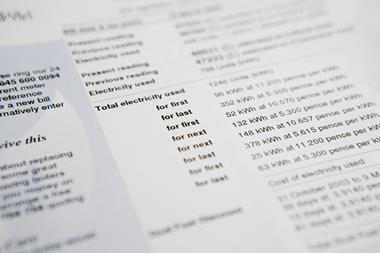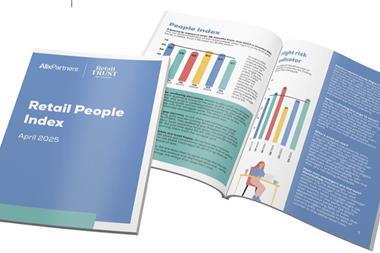
Energy regulator Ofgem has set out a raft of proposals to make the energy market fairer for businesses as part of its Non-Domestic Market Review: findings and policy consultation.
In the consultation document Ofgem said: “We have received numerous reports that the non-domestic market is not delivering to our expectations: with accounts of customers struggling to contract with energy suppliers, poor customer service, and larger price hikes than seem necessary. We are determined to investigate poor behaviour in the non-domestic sector and hold suppliers to account.”
Ofgem said it was now taking appropriate action against suppliers who have been overcharging consumers not under contract (paying deemed contract rates) and not following the rules in applying the government’s Energy Bill Relief Scheme (EBRS).
The regulator said it was aware of “the particularly high financial pressures customers are under who signed fixed price contracts last year when the wholesale price was at its peak, and now do not have the EBRS level of support”. Ofgem claimed it was giving suppliers “a clear message” to work proactively with their customers and adapt to the difficult circumstances of individual customers to support them wherever possible. This could be by finding commercial solutions to renegotiate contracts, reducing prices where needed, and spreading costs so they are more manageable over time.
Ofgem also claimed that it was working with industry to adapt the Retail Energy Code to avoid excessive delays and unreasonable requests for documentation during tenancy changes.
Ofgem proposed creating better guidance over ‘deemed contract rates’ between customers who have not yet agreed contractual terms with a supplier to avoid problems like overcharging.
The regulator also proposed changes to the regulatory framework to require timely responses to complaints and stepped-up reporting to Ofgem on complaint handling.
The consultation document stated that many stakeholders did not understand the reasons for large increases to their bills, and were not always sufficiently aware of what they were paying to third party intermediaries (TPIs), such as energy brokers. Ofgem proposed to change its rules to increase transparency of TPI commissions beyond microbusiness to all customers. Additionally, the regulator said it would work with stakeholders to improve transparency in bills, so there was better understanding of price changes. Ofgem also proposed that the government considers implementing regulation of the TPI market.
What’s more, the regulator proposed wider access to the energy ombudsman, which is currently only accessible to domestic customers and microbusinesses.
Neil Lawrence, director at Ofgem, said: “Suppliers are short-changing too many of their customers, who deserve better.
“Customers need more support when they are struggling and should be able to contact their supplier without frustration or undue delay when they need help.”
He claimed that Ofgem’s plans put the welfare of business consumers first and set out a comprehensive package to “tackle poor behaviour by energy suppliers”.
The proposals have been welcomed by the Association of Convenience Stores (ACS), although the trade body claimed that change should have come sooner.
ACS chief executive James Lowman said: “We welcome Ofgem’s acknowledgement that the protections afforded to microbusiness customers should be expanded to include more businesses, and support proposals to regulate the TPI market, but this is long overdue. Ofgem have been looking at stronger enforcement against rogue TPIs and wider business protections for a decade, and to date very little progress has been made. We need immediate action to ensure that the energy market is working competitively and fairly for everyone.
“We are pleased that the plight of businesses who signed contracts at the peak of the energy contracts has been acknowledged, but those businesses need more support now. Government help was cut back too far, too soon, and the energy companies are not doing enough to help through moving to blend and extend contracts or offering early exit from agreements.”
Proposals from the non-domestic review will be published in a statutory consultation in autumn 2023. ACS said it would be responding to the consultation in due course.











![WG-4003[58]](https://d2dyh47stel7w4.cloudfront.net/Pictures/274x183/4/5/1/353451_wg400358_6083.jpg)
















No comments yet